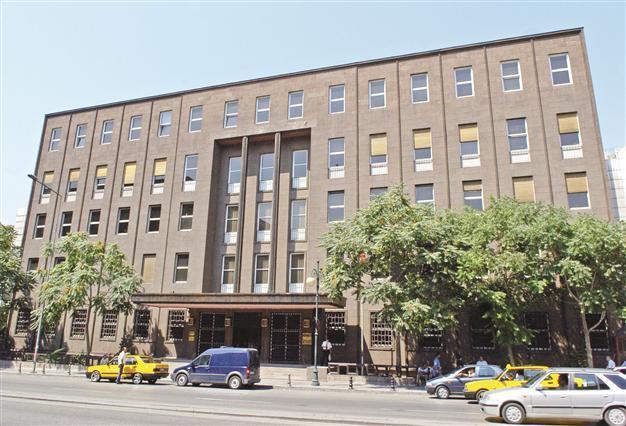Falling prices boost case for easing policy
ANKARA - Reuters

This photo shows the headquarters of the Central Bank in the capital city of Ankara.
Falling consumer prices support gives room to the bank to ease monetary policy. AA photo
Turkish consumer prices fell more than expected in July, data showed on Aug. 3, supporting expectations that the central bank will ease monetary policy in coming months while maintaining a cautious stance as the country’s stellar economic growth slows.
Producer prices also dipped more than predicted, giving further evidence of easing inflation pressures and the impact of falling oil prices in a country that imports around 95 percent of its energy needs.
Monthly inflation has now fallen for the past three months, helping to restore confidence in the central bank’s complex policy mix, although on an annual basis inflation still remains much higher than the bank’s year-end target level of 5 percent, and year-end forecast for inflation of 6.2 percent.
“The bank will maintain its cautious stance and gradual easing. It may narrow its rate corridor in September or at the latest in October,” said EFG Istanbul chief economist Haluk Bürümcekçi.
The upper limit of the bank’s rates corridor, the overnight lending rate, stands at 11.5 percent, while the bottom limit, the borrowing rate, stands at 5.0 percent. The policy rate, the one-week repo rate, stands at 5.75 percent.
The consumer price index fell 0.23 percent month-on-month in July, compared with a Reuters poll forecast for a 0.10 percent fall, the Turkish Statistics Institute said, while prices rose 9.07 percent year-on-year, up from 8.87 percent in June. The producer price index fell 0.31 percent on the month, compared with a forecast decline of 0.05 percent, giving an annual rise of 6.13 percent.
After the data, the lira weakened marginally to 1.7980 from 1.7971 beforehand and the benchmark yield was flat at 7.61 percent.
The Central Bank adopted a complicated monetary policy mix in late 2010 to help it battle inflation and rein in Turkey’s gaping current account deficit.
